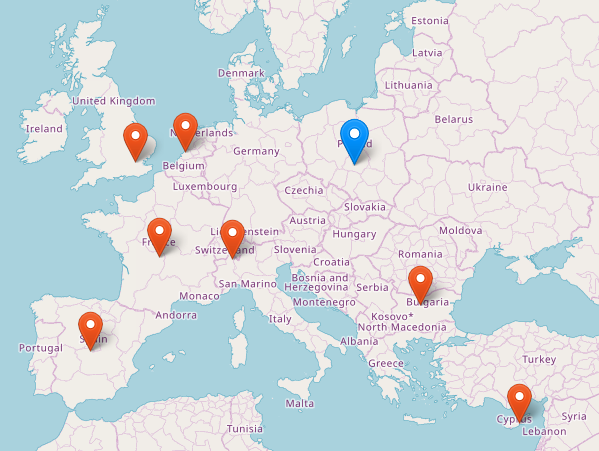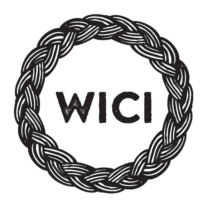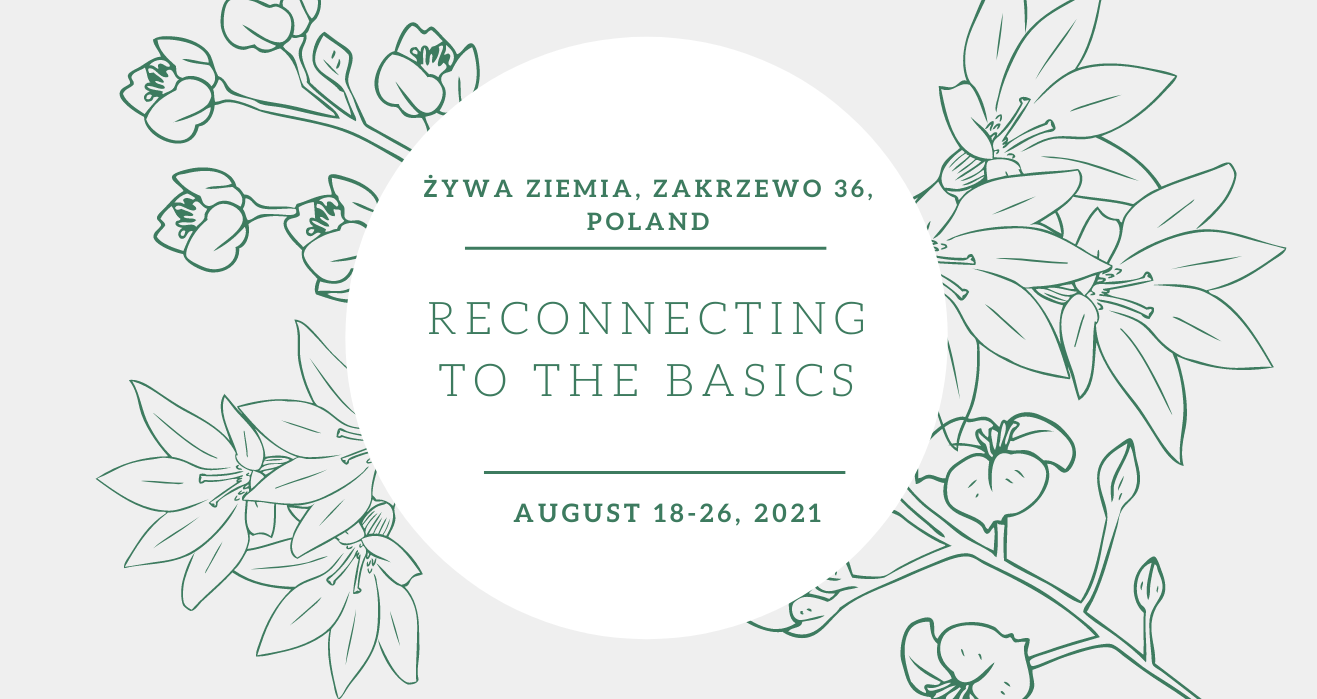About
On 18-26 August 2021 WICI held an Erasmus+ training for youth workers. It took place in a retreat centre and perm culture farm called “Living Earth” nearby Lębork (Pomerania, PL) and gathered 23 participants from Bulgaria, Cyprus, France, Italy, the Netherlands, Spain, and Poland. Our partners from the UK unfortunately could not participate due to difficult conditions related to the covid-19 pandemic. The training brought together youth workers and facilitators, health and food educators, nature and sustainability trainers, educators in cultural heritage, trainers in environmental education, and environmental law students. This diverse group of people met to get to know tools to overcome crisis and recover from it by reconnecting to what is essential and what we call “the basics” – mindful and caring connection with ourselves, connection with other people, and connection with nature. The training employed Empathic Communication, Anthroposophy and elements of Applied Drama – methodologies supporting deep connection, reflection, and regaining stability in crisis moments.
Idea
In March 2020 members of our association participated in a training course that was part of a project „Theater by Nature” by Isla CreActiva. The course presented Empathic Communication as a tool for dealing with conflicts in youth groups, especially in outdoor activities. The content was presented through applied drama and Anthroposophy based activities. During the raining we experienced the COVID-19 epidemic outburst in Europe. And we have also experienced how the
methodologies and tools we were practising had a real impact on our well-being and supported us in managing with the uncertainty of getting back home safe and staying healthy, with difficult feelings in relations with other people, especially the close ones who waited for us at home. With this project, „Reconnecting to the basics”, we want to go back to the approach of Empathic Communication, recognizing, on one hand, the value it had when being right in the moment of crisis, and on the other hand, including it in the recovery process after experiencing the crisis.
Methods
This approach is inspired with the work of Marshall Rosenberg and the Centre for Nonviolent Communication. In the core of what they explain is the nonviolent communication driven by compassion are two elements: EMPATHY which allows us to feel and recognise what is alive – first inside ourselves, and then expanding to feel in tune with another person. Learning the vocabulary of feelings and needs might be helpful to practice the skill of recognising different emotional-cognitive states, being able to name them also for the others. HONESTY, which means that NVC is not about being nice but being honest. Honest with what is present and alive in you in the moment – not in the past nor in the imagined future. Honest in admitting that you might feel hurt or uncomfortable, honest in setting limits and being assertive, honest in noticing your own anger and blocks for empathy. Only this way we may build a connection – with oneself, and then with others.
The twelve senses Anthroposophical theory and the biocentric approach proposed by Rudolf Steiner in early 1900, explains the importance of sensory perception as a way to form the basis of the relationship with oneself, the surroundings and the people around from an empathic perspective, as well as its relation with health and vitality. He focuses on will, feel and think as the holistic development of human beings and the observation of phenomenology of natural elements to gain understanding and knowledge about one’s identity and capacities to play an active role in the responsibility to create a conscious living community.
Applied Drama activities will be introduced as a complementary method adding a new dimension. It uses theatre techniques of preparing to role playing and stage performing to practice different social and psychological roles and scenarios, focusing on the „actor’s” self reflection and self development rather than on the performance. Those activities lead to developing awareness and changes in understanding. This happens through reflection over what has been acted with the help of the body, what has been expressed outside and felt inside. Through this analysis, we practice awareness of our behaviour and interaction with others. Applied drama draws from
Training course
Day 1, 19 August
Building safe space; Introduction to Anthroposphy and Non-violent Communication; Getting to know the Living Earth; Individual journal.
Day 2, 20 August
Nature as a mirror; Mindfulness practice; Tree observation, Embodying the jackal and the giraffe (NVC); Individual journal.
Day 3, 21 August
Exploring inventory of needs and feelings; Empathic buddies; Reflection circle; Request evening practice.
Day 4, 22 August
Creative journal and reconnection circle; Free space and hands-on activities at the farm.
Day 5, 23 August
Reconnection circle; Approaches to conflict; NVC in action; Self-empathy; Transforming the image of the enemy; Individual journals.
Day 6, 24 August
Reconnection circle; Empathy guesses; Being a third person in a conflict; Meditation practice; Preventing and navigating conflicts in a community; Individual journals
Day 7, 25 August
Reconnection circle; Follow-up planning; Evaluation and feedback; Closing and celebration.
Participant feedback
After the course we conducted evaluation in the form of an online survey in which participants could express their opinion and share comments regarding the venue, programme, trainers, coordination and learning outcomes. Selected participants were also invited for interviews a couple of month after the training. We were most curious if and how the ideas and skills presented at the training affected their lives and allowed them to reconnect with themselves and others. Here is what we heard from them.
I really enjoyed the topic of NVC, and I haven’t been disappointed from the program, my objectives have been fulfilled! I deeply enjoyed the variety and alternation of the learning method: embodiment, self reflexion, group reflexion, creative activity. According to my learning needs, the balance between the activities offering self reflexion/introspection and then group sharing was well done.
I think the program was life changing for me. I don’t think I would have this kind of quality of training if I had chosen a random training, this was really special one! Thank you again.
Yes, I loved this training, and it really is something I’m implementing in my life at the moment.
While it still takes time to get rid of toxic habits and ways of communicating, the closest person to me in my life noticed that I changed in how I address others and behave — for the better.
Generally, I think this training course was very professional, which does not include the feeling of a group’s intimacy. After this training, I felt better (emotionally), and it changed my attitude towards my life and living with others.
I like the most – the flow of the program and how at the end we all were satisfied not stressed like when we arrive.
Resources
A tangible result of the project is a free publication “12 EASY PRACTICES TO RECONNECT YOUR SELF TO THE BASICS.” This toolbox contains step-by-step instructions to 12 exercises based on the methods used during the training, namely Non-violent Empathy Based Communication, Applied Drama, Anthroposophy and Nature Work. You can practice them on your own or with a partner. We hope this toolbox will help you reconnect to the basics you value most. Click on the file or link under it to download the pdf.
See also an article on permaculture prepared by one of the participants (in Polish).
Team
Trainers: Marta Skorczyńska, Ainhoa Magdalena Lima
Coordinator: WICI Association, Poland
Partner organisations:
Green Association, Bulgaria
Youth Flair, Cyprus
Nomadways, France
Associazione Culturale Mastronauta, Italy
Stitching Conscious Kitchen, Netherlands
Asociación Sociocultural Isla CreActiva, Spain
Catalyst for Growth, United Kingdom

Gallery

















You must be logged in to post a comment.